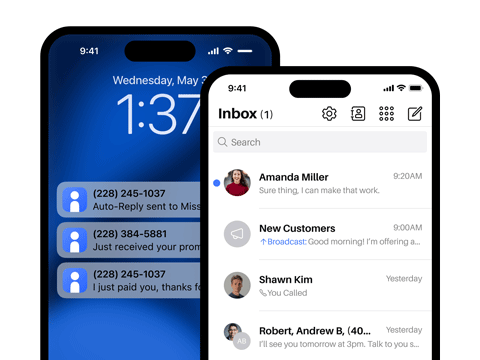Do You Need a Bookkeeper?
James Monroe, Business Management Expert and Author

Do you remember when you started your business? How exciting it was to learn new things and take on new challenges? For most of us, the excitement was about things like creating new products or services, building a website, and working with customers. It was less about managing the books.
But whether you run a lemonade stand, a sophisticated technology company or something in between, you need to keep your books and finances to grow your business.
So, how do you know if you need a bookkeeper for your small business?
Why Bookkeeping Matters for Small Businesses
At its most basic level, bookkeeping tracks how much money you’re making, how much you’re owed (accounts receivable), and who your business owes money to (accounts payable). If that’s not enough to get your attention, keeping your financial records current enables you to:
- Track customer payments and know if they are late.
- Ensure you’re charging enough—are you covering all the costs of servicing your customers? It isn’t easy to know without tracking expenses.
- Pay others promptly. Employees, contractors, vendors, and government agencies must be paid on time.
- Manage your business’s income and expenses. Is it time to cut costs or raise rates?
- Know if your business is profitable.
- File your sales and business tax returns.
Of course, you’ll also need your business records to be accurate when bringing on a business partner, applying for a loan or grant, or selling your business. So, it’s not a question of whether your financial records must be kept flawlessly. It’s a question of who does it and what it costs.
Bookkeeper, Accounting Software, or Both?
Bookkeepers and bookkeeping software can manage a lot of the accounting work. But regardless of whether you hire a bookkeeper, pay for a bookkeeping service or do both, you still need to be involved in setting the business and financial goals, deciding what to track, authorizing payments, reviewing reports and making decisions based on those reports.
The Pros of Hiring a Bookkeeper
There are several advantages to hiring a bookkeeper. Here are a few:
- Save time
Hiring a bookkeeper can free up your time to focus on other areas of your business that you enjoy or feel more competent handling, or it can help you bring in more money. - Decrease paperwork
A competent accountant can manage your bookkeeping paperwork, whether the records are hard copy or digital. Just make sure you know where physical files are and the passwords for digital files. - Fewer headaches
Suppose your business is complicated. You may have many products or services, sell products in multiple locations with different sales tax policies, or have employees in multiple states. In such situations, getting a bookkeeper to help you manage is wise.
Accounting Software
Today’s accounting software options make it easier than ever to manage your books. You may want to save some money and do it yourself if:
- Your bookkeeping is simple. Your business is simple enough or small enough that you can easily manage your books yourself.
- You’re comfortable using accounting programs like QuickBooks or FreshBooks, or you have pro-level Excel skills.
- You don’t want to risk having your sensitive financial and banking data falling into the wrong hands.
What About “Hybrid” Bookkeeping?
A hybrid solution to managing your accounting may be the right fit for your small businesses. As a business owner, you can handle the day-to-day bookkeeping using accounting software and have an outside bookkeeper come in periodically to balance accounts, correct any accounting errors, file sales tax reports, and produce basic accounting reports.
The advantages of a hybrid bookkeeping solution include:
- Cost savings
You’ll reduce the time you need from a bookkeeper consultant or a bookkeeping service. - Fewer mistakes
When it comes to tracking your accounting records, mistakes can be costly. So having another set of eyes on your books is smart. - Time savings
Having a bookkeeper check your work and provide critical reports for your business planning will save you precious time to spend on other areas of your business. - Easier tax prep
When it’s time to file your taxes, having a bookkeeper prepare all the reports that your tax advisor needs will save you time.
How Can I Find a Bookkeeper?
Finding a bookkeeper can be challenging if you don’t have a friend or relative who’s a bookkeeper or accountant. Try asking your tax accountant or similar small businesses for recommendations. But before you do, consider what type of bookkeeper you prefer.
- Freelancers
Freelance bookkeepers are usually relatively inexpensive. They generally charge an hourly rate or a fixed monthly fee. They can also be convenient: a local bookkeeper can visit your office and deal with paper receipts and invoices, so you don’t have to transmit these documents to someone working remotely. - Firms
Bookkeeping firms can be a more expensive option. However, because firms are larger enterprises, they typically have a range of experts to handle various levels of accounting. Plus, they are less likely to experience bottlenecks during busy periods. - Online services
An online bookkeeping service is often the lowest-cost option. These companies connect directly with your accounting software, bank, and tax accountant. Because they typically have a large staff and more resources, they should be able to provide services even during busy times. The better services enable you to communicate directly with a live bookkeeper.
To learn more about online bookkeeping resources, check out NerdWallet’s evaluation of the top online bookkeeping services, including Quicken Live, Bookkeeper360, and Merritt Bookkeeping.
Finding a bookkeeper can be challenging if you don’t have a friend or relative who’s a bookkeeper or accountant. Try asking your tax accountant or similar small businesses for recommendations. But before you do, consider what type of bookkeeper you prefer.
Bookkeepers vs. Accountants and CPAs
If it’s not already evident, bookkeepers and bookkeeping software can help small businesses with the day-to-day and month-to-month financial tracking and reporting that helps your business succeed.
However, bookkeepers and software cannot give you the financial and tax strategies you can get from an accountant or CPA.
If you found this article interesting, you should check out “10 Bookkeeping Tips for Small Business.”
For more tips for running and growing your small business, visit Index by Pinger.

James Monroe
Jim Monroe is an author, business leader, marketing and product strategist. He is passionate about helping young managers be successful by avoiding common mistakes. His latest book on management is “Don’t Be a Jerk Manager: The Down & Dirty Guide to Management.”
Recommended Reading
Streamline customer interactions with Index
The Index app was built specifically for small businesses, with tools to help you communicate faster and more easily with your customers. Try Index risk-free for 7 days.




